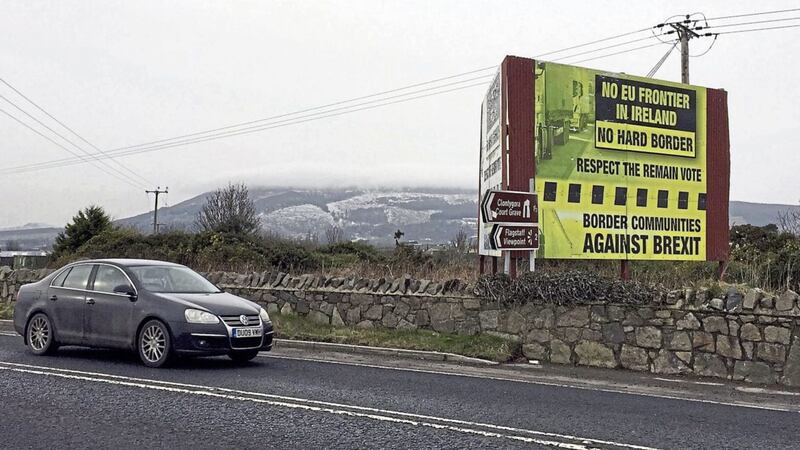A political and media culture focused on supposedly make-or-break Westminster deadlines means Brexit has inevitably come to be seen as a big bang rather than a slow puncture.
This short-sighted focus is now narrowing down to a squint as deadlines quicken towards October 31, with all signs pointing to the prime minister running down the clock for a no-deal exit. It is hard to lift your eyes and look at the years ahead, or even the months ahead.
So start by thinking just one day ahead, to a possible no-deal dawn on November 1.
The world’s media descends on the border to film the expected pandemonium and finds - nothing. Apart from protests by Sinn Féin, of course. But that will be it. Brussels, Dublin and London already have no-deal contingencies in place to ensure all private and public transport will continue to flow freely for up to nine months.
Lorries can flow freely too, with their contents and paperwork checked at Dublin and Rosslare. Agrifood supply chains will be devastatingly disrupted, but that will not be visible at the border itself. So the TV crews will film one last shot of the invisible frontier, save it to their libraries so they never need to come back, and go home.
This day alone will transform perceptions of Brexit. Only after the big bang fails to happen will we start to hear the air slowly escaping from the United Kingdom.
Months will follow of trying to extend the contingencies and arrange more as new problems crop up. Glum awareness will grow that an overall deal with the EU will take at least a decade, if it can be agreed at all, given that the governments and parliaments of all 27 members states would have to ratify it.
Without the protection of Theresa May’s withdrawal agreement and its extendable transition period, the UK will have to engage with Europe on Europe’s terms. The EU will treat the UK as a potentially disruptive competitor and will seek to constrain it accordingly.
Most people looking this far ahead on Brexit predict the UK will be shocked and demoralised by its reduced status, or perhaps more correctly by the gradual realisation of its correct status. Some wonder if this could eventually lead to a country more at peace with itself, which must be considered the height of optimism.
A far likelier outcome of a politics in which Brexit never seems to end is for the current split on the issue to persist, create a new party system and foster the idea of rejoining the EU, ensuring Brexit remains divisive for decades. The UK argued bitterly over the Corn Laws, a comparable issue, for half of the 19th century.
However, there are grounds for cynical optimism in Northern Ireland. The EU will show extra flexibility to the island of Ireland, if only because the Republic will require it. Future British governments, shorn of dependence on the DUP, should be relaxed and relieved at Northern Ireland receiving special treatment.
One of the easiest outcomes to foresee is the rapid evolution of a de facto sea border, as arrangements at Dublin and Rosslare are mirrored at the Port of Belfast, driven by the commercial imperatives of shippers and manufacturers. The many problems this would not solve at the border would have a “blind eye” turned to them, as former taoiseach Bertie Ahern has predicted, until other fudges are found.
Applying such patches to our Brexit slow puncture would challenge Northern Ireland politics. Would unionists fight it, as a drifting apart of the union? Would nationalists welcome it, despite a lessening of the pressure for a united Ireland? Would a reconvened Stormont help to manage the process or just be a forum for petty argument and obstruction?
If the latter is the case, as must be assumed, matters would be taken out of our hands. Special status for Northern Ireland will be a prerequisite of the EU trade deal the UK is about to spend a Corn Law-length of time pursuing.
The longer-term choice for our politics is whether to be spectators or participants in our fate.









